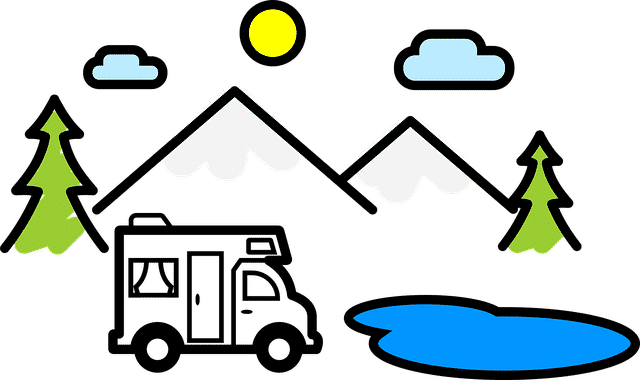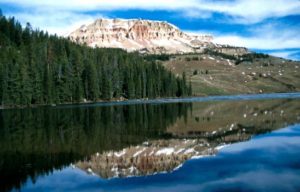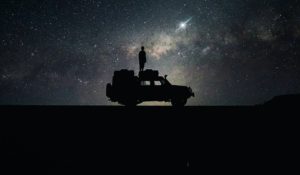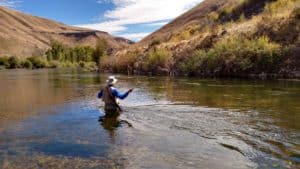Traveling to national parks can be one of the highlights of owning an RV. But if you can’t hook up at a campsite, you may find you will need your generator. It’s important to know the rules.
Are generators allowed in national parks? Yes, generators are allowed as long as they don’t exceed 60db or cause unreasonable noise. But they are often only allowed during restricted hours and only in designated areas. Here’s what you need to know.
While each park is different, there are some general rules that apply to every national park. But there are also some alternatives that will allow you to use your generator with less restrictions. Let’s find out what your options are.
How Loud Can Your Generator Be in a National Park?
The National Park Service has rules in place for the maximum number of decibels your generator can be while in a national park. The NPS rules are outlined in 36 CFR Section 2.12. Since it’s important to know exactly what the law says, let’s take a look. The regulations prohibit:
“Operating motorized equipment or machinery such as an electric generating plant, motor vehicle, motorized toy, or an audio device, such as a radio, television set, tape deck or musical instrument, in a manner: (i) That exceeds a noise level of 60 decibels measured on the A-weighted scale at 50 feet; or, if below that level, nevertheless; (ii) makes noise which is unreasonable, considering the nature and purpose of the actor’s conduct, location, time of day or night, purpose for which the area was established, impact on park users, and other factors that would govern the conduct of a reasonably prudent person under the circumstances.”
What Does This Mean?
There’s a lot to unpack here, so let’s break it down.
First, if your generator is making noise in excess of 60db it’s prohibited, regardless of any other factors.
Second, as you can see, the regulations give the park and park rangers latitude to determine whether a generator or other piece of equipment in making noise that is “unreasonable”. This is the case even if it is below the 60db threshold. The regulations require a consideration of the totality of the circumstances. These can include the impact on other users or any other factor not specifically stated. So if there is a complaint from another camper that is not totally unreasonable, you’ll likely be required to turn off the generator.
The main takeaway is the thing that you should always keep in mind when visiting national parks, whether it’s in regard to your generator or anything else: Be respectful of the park and other visitors. Most people go to national parks to appreciate the natural beauty and outdoors and running your generator in an unreasonable way is completely contrary to that spirit.
The mission of the National Park Service is
“to preserve unimpaired the natural and cultural resources and values of the national park system for the enjoyment, education, and inspiration of this and future generations.”
Insisting on running your generator in a way that impairs that is likely to result in a conversation with a park ranger.
National Park Quiet Hours
Notwithstanding the above, national parks also have quiet hour regulations. There is a prohibition against
“Creating or sustaining unreasonable noise between the hours of 10:00 p.m. and 6:00 a.m., considering the nature and purpose of the actor’s conduct, impact on park users, location, and other factors which would govern the conduct of a reasonably prudent person under the circumstances”
You can see that some of the language mirrors the language on generator noise. As a result, the park and park rangers have a wide latitude to consider all of the circumstances. And the more people camping around you, the stricter they are likely to be. And not only do national parks define quiet hours on a nationwide basis, but each park is also free to extend those hours as they see fit.
For instance, Yellowstone National Park only allows generators in certain campgrounds and, even there, only from 8am to 8pm. You’ll want to check each park’s rules before traveling.
In summary, yes you can use a generator at a national park as long as it doesn’t exceed 60db or doesn’t create unreasonable noise or disturb other campers. And no, there is not a blanket prohibition on running your generator at night. If it creates unreasonable noise, however, you may be told to turn it off, especially between 10pm and 6am. And finally, each park can have more restrictive rules, so make sure to check before you go.
BLM Land
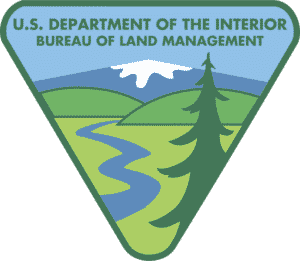 Another option for using your RV with a generator is camping on BLM land. The rules are looser and you’re less likely to encounter other campers.
Another option for using your RV with a generator is camping on BLM land. The rules are looser and you’re less likely to encounter other campers.
The Bureau of Land Management (BLM) is part of the Department of the Interior and administers over 247 million acres. Camping is available at most BLM sites, and it’s one of the best places for dispersed camping. Dispersed camping is generally camping outside of a designated campground. While most of the areas require a fee for established campgrounds, you can camp freely in the rest of the park.
And, unlike in national parks, there are no established quiet hours for BLM land. Camping on BLM lands has less restrictions and less oversight. The only restriction on generators on BLM land is against making “unreasonable noise” or creating a nuisance.
Dispersed camping on BLM land will often mean that you are isolated and, most likely, not able to see or hear other campers. As a result, there’s little chance that your generator will be loud enough to cause any problems, regardless of the time of day or night.
National Forests
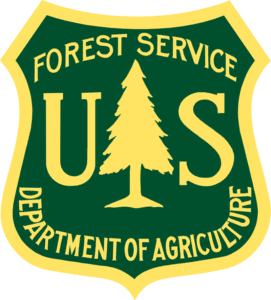 Besides national parks and BLM land, another option is national forest. National forests are managed by the United States Department of Agriculture Forest Service. In most national forests, you are free to disperse or backcountry camp anywhere away from established campgrounds and anywhere your vehicle or equipment don’t block developed trails or rights-of-way.
Besides national parks and BLM land, another option is national forest. National forests are managed by the United States Department of Agriculture Forest Service. In most national forests, you are free to disperse or backcountry camp anywhere away from established campgrounds and anywhere your vehicle or equipment don’t block developed trails or rights-of-way.
And there is no general rule regarding quiet hours. You should know, however, that each area can set its own rules regarding quiet hours, so don’t assume they don’t apply to the forest you’re visiting. The only general prohibition is against
“Operating or using in or near a campsite, developed recreation site, or over an adjacent body of water without a permit, any device which produces noise, such as a radio, television, musical instrument, motor or engine in such a manner and at such a time so as to unreasonably disturb any person.”
So let’s break down exactly what this is saying. The prohibition is only against operating your generator in or near certain areas. The prohibition does not apply to other areas of the forest. If you’re camping in a developed campground in a national forest, there may be quiet hours that apply based on the park. Oftentimes you’ll see quiet hours similar to the 10pm to 6am hours in national parks. As always, check the rules of whatever national forest you’re visiting.
Conclusion
There’s a lot of information here, so let’s just summarize what you need to know about using your generator at a national park or other federal lands.
National Parks
- Less than 60db
- No unreasonable noise
- Additional scrutiny during “quiet hours” of 10pm to 6am
- May be restricted to certain areas
- Park rules may be more restrictive with hours and/or available areas
BLM Land
- No restriction on volume
- Prohibits unreasonable noise or nuisance
- No quiet hours
- Little enforcement
National Forests
- No restriction on volume unless near developed areas
- Generally no quiet hours in undeveloped areas
- Usually quiet hours and restrictions at developed campgrounds
- Individual parks may have more restrictive rules
If you’re looking to travel with your RV and your generator to experience the amazing natural wonders of the United States, it will just take a little planning and research. But if you prepare beforehand and keep in mind the rules above, you can have an enjoyable journey without breaking any rules or spoiling the experience for you or other visitors. And, as always, make sure to check park rules before you set off.

